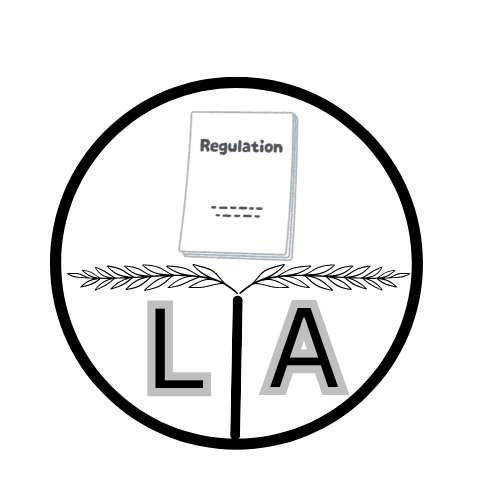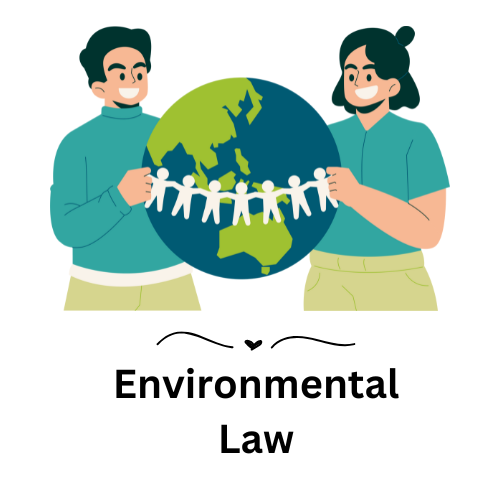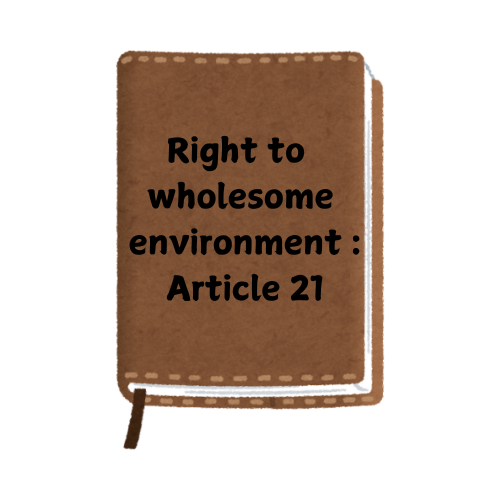Right to wholesome environment : Article 21
Right to wholesome environment : Article 21
Right to wholesome environment : Article 21
Right to wholesome environment : Article 21
Right to wholesome environment : Article 21
Right to wholesome environment : Article 21
Welcome to Law Adhoc Tutorials !
These notes are in easy language and easy to remember.
Law Adhoc Tutorials is an education platform. It helps law students get high quality notes to make their study easier. Law Adhoc Tutorials provides full and completes notes for free for each subjects of law.
Right to wholesome environment : Article 21
Right to wholesome environment : Article 21
THE RIGHT TO A WHOLESOME ENVIRONMENT
INTRODUCTION
This article titled “Right to Wholesome Environment: Evolution and Application” deals with the right of people to have a safe and healthy environment around them. The article begins with a brief on Article 21 as it guarantees personal life which in turn includes Right to wholesome environment : Article 21.
ARTICLE 21
Article 21 reads, “Protection of life and personal liberty No person shall be deprived of his life or personal liberty except according to procedure established by law.”
Part III of the Indian Constitution defines citizens’ fundamental rights but does not explicitly mention the right to a healthy environment. Nonetheless, the Supreme Court guidelines are important, and the interpretation of Article 21 has been expanded to include this right.
Article 21 is a key fundamental right in the Constitution, protected under Article 32, which covers the Right to Constitutional Remedies. The Right to Life in Article 21 is essential for protecting life.
While concentrating on the connection between Article 21 and the idea of a wholesome environment, emphasis has been placed on the significance of preventing the robbery of life. Environmental quality and general health have an impact on a person’s life expectancy; as a result, one of a person’s fundamental rights is the right to live in a clean environment.
RIGHT TO WHOLESOME ENVIRONMENT
Everyone has the right to a healthy environment. In 2012, Jayanthi Natrajan, who was the Union Minister of State for Environment and Forests, stressed the need to protect this right.
The Environmental (Protection) Act of 1986 defines important parts of the environment, including air, water, land, and the well-being of people and animals. A “wholesome environment” means safe and healthy living conditions.
The case of Rural Litigation and Entitlement Kendra v. State of Uttar Pradesh was important because it recognized that the right to a wholesome environment is part of the right to life and personal freedom. In the case of Subhash Kumar v. State of Bihar, the court further explained that the term “life” in Article 21 includes the need for environmental protection.
ROLE OF THE JUDICIARY IN MAKING LAWS TO PROTECT ENVIRONMENT
- sustainable development
- precautionary principle
- whoever pollutes pays principle
Constitutional Provisions
Right to wholesome environment : Article 21
Right to Equality and Environment Protection (Article 14):
Equality before the law and equal protection of the law has been granted under article 14 of the Constitution. This fundamental right impliedly casts a duty upon the state to be fair while taking actions in regard to environmental protection and thus, cannot infringe article 14. In cases of exercise of arbitrary powers on behalf of the state authorities, the judiciary has played a strict role in disallowing the arbitrary sanction. Use of discretionary powers without measuring the interest of the public violates the fundamental right of equality of the people.
In Bangalore Medical Trust v. B.S Muddappa, the City Improvement Board designated land for a low-level park. However, the chief minister ordered this land to be used for a hospital instead. Residents filed a petition in the high court, which ruled in their favor. The case then went to the supreme court, where the appellant claimed that land allocation is a discretionary power and that using the land for a hospital was acceptable.
The supreme court, however, rejected the appeal, stating that open spaces and parks are crucial for cities and public well-being. The court emphasized that these lands should not be sold or leased for profit, as they are essential for the community.
Freedom of Speech and Expression and Environment (Article 19(1) (a)):
The right to speak and express oneself is a fundamental right in India, found in Article 19(1)(a) of the Constitution. Many individuals have gone to court to defend this right, including in the case of Rural Litigation and Entitlement Kendra v. State of Uttar Pradesh, where they raised concerns about a clean environment and their right to livelihood.
The media is crucial in shaping public views on environmental issues, and this role is recognized as part of the freedom of the press under Article 19(1)(a).
Freedom of Trade and Commerce and Environment Protection (Article 19(1) (g)):
Every citizen in India has the right to work in any profession, business, trade, or commerce anywhere in the country, as stated in Article 19(1)(g) of the Constitution. However, this right is not unlimited and has reasonable restrictions. Article 19(6) explains these restrictions to protect the environment.
These rules aim to prevent environmental harm and preserve our ecological balance. Therefore, individuals cannot engage in activities that damage the environment while conducting their business or profession. This highlights the need for responsible practices in both business and environmental care.
In the case of M.C. Mehta v. Union of India, AIR 1988 SC 1037, tanneries were dumping harmful waste into the Ganga, causing serious pollution. They failed to set up a waste treatment plant despite repeated reminders. The court ordered the tanneries to shut down due to their inaction. While it acknowledged potential job losses, it stated that protecting health, life, and the environment is more important.
Directive Principle of State Policy (Article 48(A)):
Protection and improvement of environment and safeguarding of forests and wild life The State shall endeavour to protect and improve the environment and to safeguard the forests and wild life of the country.
In Sher Singh v. Himachal Pradesh, It was held that the citizens of the country have a fundamental right to a wholesome, clean and decent environment. The Constitution of India, in terms of Article 48A, mandates that the State is under a Constitutional obligation to protect and improve the environment and to safeguard the forest and wild life in the country.
The Parliament availed the opportunity provided by the Constitution (Forty-second Amendment) Act, 1976 to improve the manifestation of objects contained in Article 48 and 48-A. While Article 48-A speaks of environment, Article 51-A (g) employs the expression the natural environment and includes therein forests, lakes, rivers and wild life. While Article 48 provides for cows and calves and other milch and draught cattle,
Article 51-A(g) enjoins it as a fundamental duty of every citizen to have compassion for living creatures, which in its wider fold embraces the category of cattle spoken of specifically in Article 48.
In T.N. Godavarman Thirumalpad v. Union of India & Ors., a three-judge Bench of this Court read Article 48-A and Article 51-A together as laying down the foundation for a jurisprudence of environmental protection and held that: Today, the State and the citizens are under a fundamental obligation to protect and improve the environment, including forests, lakes, rivers, wildlife and to have compassion for living creatures.
Public Interest Litigation in Environmental Protection
Public Interest Litigation (PIL) allows any individual, organization, or group to go to court to help the public or protect the public’s interests. In India, PIL has been important for promoting environmental protection and conservation.
People can file PIL against both public and private entities that break environmental laws or harm the environment. PIL often addresses issues like protecting the environment, controlling pollution, conserving natural resources, and supporting sustainable development.
PIL helps to promote transparency and accountability in governance by holding public authorities responsible for their actions or inactions regarding environmental protection. PIL in environmental law has also helped to create awareness among citizens about environmental issues and their rights. It has empowered people to take action against environmental violations and seek redressal from the judiciary.
The Supreme Court, in the case of Indian Council for Enviro-Legal Action vs. Union of India, issued a warning to industries that discharge dangerous substances like Oleum and H acid. The court stated that such pollution is a violation of the right to a safe and healthy environment and, ultimately, the right to life.
In the landmark case of Vellore Citizens’ Welfare Forum vs. Union of India, the Supreme Court allowed a public-spirited social organization to represent the residents of Vellore to protect their health. In this case, the tanneries located around the Palar River in Vellore, Tamil Nadu, were found to be discharging toxic chemicals into the river, endangering the health of the residents. As a result, the Court ordered the tanneries to close their businesses.
Right to wholesome environment : Article 21
Environment Law notes : https://lawadhoctutorials.com/environmental-law-notes/
Right to wholesome environment : Article 21
All subjects law notes : https://lawadhoctutorials.com/subject/
All subjects law notes in pdf : https://lawadhoctutorials.com/notespdf/
Law of torts lecture link on YouTube: https://youtu.be/fRx-i5fk3jo?si=QPnyduoa3IeZoI5W
Right to wholesome environment : Article 21
Free and easy to access law notes. The law notes are available for all law subjects. Please check the below-mentioned list for complete law notes.
Right to wholesome environment : Article 21
Click on the specific subject to view its notes.




At this time I am going away to do my breakfast, after having my breakfast coming
again to read more news. https://mrifusion.mystrikingly.com/
At this time I am going away to do my breakfast, after having my breakfast coming again to read more news. https://mrifusion.mystrikingly.com/
Great blog! Is your theme custom made or did you download it from somewhere?
A design like yours with a few simple adjustements would really make my blog shine.
Please let me know where you got your theme. With thanks https://urs-wiscope.mystrikingly.com/
Great blog! Is your theme custom made or did you download it from somewhere?
A design like yours with a few simple adjustements would really
make my blog shine. Please let me know where you got your theme.
With thanks https://urs-wiscope.mystrikingly.com/
What’s up, yup this piece of writing is in fact pleasant and I
have learned lot of things from it regarding blogging. thanks. https://www.uniladtech.com/news/tech-news/man-spent-10000-bitcoin-two-pizzas-worth-144371-20241205
I believe that is one of the such a lot vital information for me.
And i’m glad reading your article. However wanna statement on few common issues, The site taste is ideal, the articles is really nice :
D. Excellent job, cheers https://menbehealth.wordpress.com/
Introducing to you the most prestigious online entertainment address today. Visit now to experience now!
Hmm it seems like your blog ate my first comment (it
was extremely long) so I guess I’ll just sum it up what I
wrote and say, I’m thoroughly enjoying your blog.
I as well am an aspiring blog writer but I’m still new to the whole thing.
Do you have any points for newbie blog writers?
I’d definitely appreciate it.
Also visit my website :: nordvpn coupons inspiresensation
It contains fastidious material.|I think the admin of this website is actually working hard in favor of his site,
Fiquei muito feliz em descobrir este site. Preciso de agradecer pelo vosso tempo
Também tenho o seu livro marcado para ver coisas novas no seu blog.
buď vytvořil sám, nebo zadal externí firmě, ale vypadá to.
Díky moc!|Hej, jeg synes, dette er en fremragende blog. Jeg snublede over det;
råb ud og sig, at jeg virkelig nyder at læse gennem dine blogindlæg.
information.|My family members every time say that I am killing my time here
reading this weblog’s post to be updated daily.
الاستمرار في توجيه الآخرين.|Ahoj, věřím, že je to vynikající blog. Narazil jsem na něj;
This design is spectacular! You obviously know how to keep a reader amused. Between your wit and your videos, I was almost moved to start my own blog (well, almost…HaHa!) Great job. I really loved what you had to say, and more than that, how you presented it. Too cool!